Suzanne Vega - Interview
by Lisa Torem
published: 8 / 11 / 2016
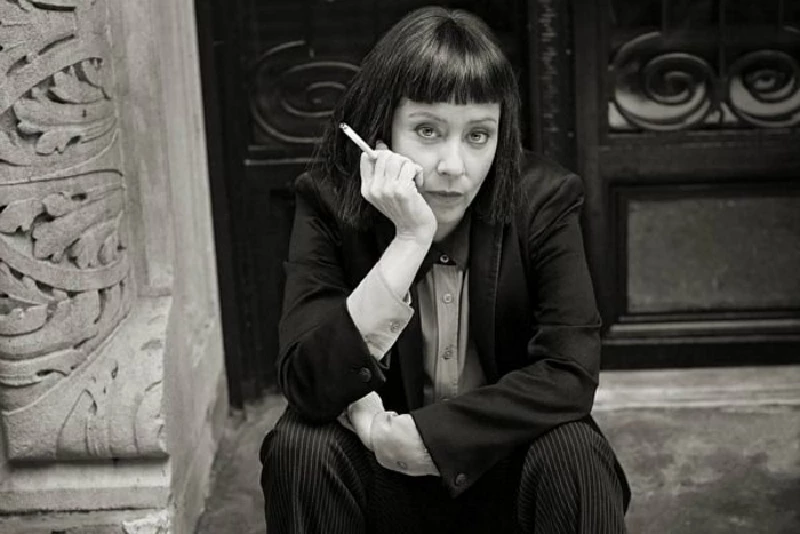
intro
Lisa Torem talks to New York singer-songwriter Suzanne Vega about author Carson McCullers, the new album which she inspired and her upcoming tour
Suzanne Vega may be known for rekindling the folk music renaissance that developed in New York’s Greenwich Village in the 1980s, but her studio albums speak for themselves. The singer-songwriter’s deep love of literature, mythology, cinema and city living have greatly inspired the material in her first eight albums. More recently, however, she dedicated her creative spirit to an earlier muse—author/musician Carson McCullers, for whom she has also crafted a theatrical piece. In her third Pennyblackmusic interview, Vega expounds on the ten songs that comprise ‘Lover, Beloved: Songs from an Evening with Carson McCullers’. Vega’s extraordinary career began with the release of her self-titled album of 1985, which featured ‘Marlene on the Wall’. The album was ultimately included in Rolling Stone's '100 Greatest Records of the 1980s'. Using her native New York as a curious canvas, she constructed the sparse, but rhythmic ‘Tom’s Diner’ for ‘Solitude Standing’(1987). The song achieved further fame when British duo, DNA, made an illegal recording of it, but when Vega discovered that the song had circulated successfully in clubs she negotiated a deal for a legal remix. In the 1990s, she ventured into industrial-folk with ’99.9 F' (1992) and collaborated with composer Philip Glass. The following decade found her developing ‘Songs in Red and Gray’ (2001) and ‘Beauty and Crime’ (2007), which was sensitively written after 9/11 and the loss of her brother. Besides having a one-off voice, a penchant for divining stellar melodies and the ability to express a wellspring of emotion throughout her career, Vega demonstrates that she is a demon of perseverance. Besides possessing natural talent, she has maintained her long-standing career through dedication and a positive attitude. And, as always, Suzanne Vega remains stunningly contemporary, even though, this time around, she couldn’t resist the intoxicating lure of a literary past. PB: The focus of your new CD, ‘Lover, Beloved’ is the late author Carson McCullers. Why the fascination? SV: I just think she’s a really interesting, modern person. She was way ahead of her time. Her androgyny, her bisexuality and the way she used language was very tough and feels very contemporary to me, and the way she continued working even though she had all of these disabilities. She was very able in spite of all her illnesses, and her attitude towards the way she was able to write, from a very empathic point of view, especially in 'The Heart is a Lonely Hunter', her first novel. PB: In ‘Instant of the Hour After,’ you sing, “The show is over for now, the monkey is dead,” “how I love you/ how I loathe you.” What prompted the ambivalent lyrics? SV: Her writing. That was taken from a story that she wrote called, ‘Instant of the Hour After’ — those words are right from her story, the story of two alcoholics who are drinking and at the end of the night they are having this argument. It’s pretty obvious it’s the way you feel if you love someone who drinks. You feel ambivalent, I think. PB: In the song, ‘We of Me,’ the central theme seems to be, “I and the world are always separate.” Other original songs like ‘Gypsy’ or ‘Left of Center’ speak of the outsider too. What strikes you as compelling about that type of person? SV: Well, I myself felt like a kind of outsider growing up. I had a different father from the rest of my brothers and sisters and I was raised in a neighborhood that was mostly black and Puerto-Rican, so I stood out in a way; not in a good way, either. So I suppose I identify with that role. PB: You have a gift for writing about women, whether they are drawn from mythology, royalty, Hollywood or everyday life. The main character in ‘Annemarie’ appears to be very influential and multi-dimensional. Did you imagine her to be human or supernatural? SV: Oh, it’s both. ‘Annemarie’ was someone that Carson was in love with, and from reading her biograph, she worshipped her. If you look up the woman, Annemarie Clarac Schwartzenbach, she was loved by many people, not just Carson McCullers, so in the song she kind of raises Annemarie to the point of being a kind of deity, especially by the last verse. She’s kind of both, a real person and a kind of icon. PB: ‘Harper Lee’ is a delightful song on which you as McCullers reference McCuller’s literary peers. Was McCullers really that competitive? SV: Oh, very. Yes. All of those things she said are things that she actually did say, except that there’s maybe one or two things that I found online that she didn’t say, but she might have said. The line about “My sad café is greater than his Gatsby” — someone else said it online and I thought she would have liked it. So she didn’t actually say it, but I thought she would have liked it, and the final line, “I’d like to kill more than just that mockingbird” was actually written by Duncan Sheik, who wrote the music, and it was such a great line that I had to grab it and throw it right in there, and it rhymed and everything. That’s the one line she did not say, but the rest of it is pretty much taken from her autobiography. PB: How extensive was your research and how long did it take you to write the show and then the album? SV: I dread telling you the answer. I have been working on this since I was in college, which is a long time ago now. It’s a project that I’ve been working on with pleasure since I was nineteen or twenty, and not consistently. After I graduated from college, I put it away for about thirty years and then I took it out again — I guess it was 2010, and then I started working on it again. So there’s your answer, a lifetime. PB; ‘The Ballad of Miss Amelia’ reminds me of ‘I Never Wear White’ from your last album, 'Tales from the Realm of the Queen of Pentacles', because in it the protagonist mocks convention, although the format here is completely different. SV: That is the story line and plot of “The Ballad of the Sad Café. All I did was adapt it. That’s one I wrote back in college, actually. There’s a longer version, actually, so that was the shorter version. I found it a pleasure to take her work and adapt it. Her writing itself is quite musical because she was a trained musician and I think sometimes her cadences and rhythms crept in there, so it was fairly easy to adapt. PB: Are you aware that there are blogs in which your lyrics are hotly debated? SV: No. I have not seen them. PB: On one blog, you've got fans going back and forth, figuring out, perhaps, everything that you’d been thinking when writing ‘Marlene on the Wall’-perhaps they even figured out the real meaning. SV: The thing about the songs is that they’re open-ended (Laughs). It would be crazy if they actually knew exactly what I was thinking. And, in fact, ‘Marlene on the Wall’ is a song that I thought at first, that no one will understand, so I thought literally about throwing it away when I had written it thinking, "This is just not going to work." And my guitar player at the time told me to get it out of the garbage because we needed a major key song to start the set with, and so I did, and it became a hit much to my surprise. So I’m glad at least people are wondering what the lyrics are about. PB: I want to share a personal story. My sixteen-year-old came barging into the room when I was listening to your new album. She asked, "Is that Regina Spektor? Is that Fiona Apple?" She was not familiar with the material on your new album, but your music sounded very contemporary to her and struck a deep chord. Are you aware that you have a youthful cult audience out there? SV: I see them on Twitter and I love it and I think it’s really great. I see some of the younger people tweeting and I always “like” them and retweet them. I see them at the shows too, and it’s terrific. PB: You have a youthful attitude about music. SV: I love music. My daughter and I share an iTunes account because she still uses my credit card. I actually pay for the music, so I’m grateful that she does that, so that means whenever she buys something new I receive it on my phone and from time to time I zip through whatever she’s bought and listen to it and I’ve found some great stuff that way. I spent quite a bit of time with Rihanna’s new album (‘Anti’), which I really like. I actually listened to Drake’s new album (‘Views’), Rhianna’s new album and Chris Brown’s new album, ‘Heartbreak on a Full Moon’. I know she used to go out with both of them. She’s going out with Drake now and she used to go out with Chris Brown, so it’s kind of amusing to hear them write about each other, but her album is definitely the best one out of the three. PB: Let’s shift gears. Gerry Leonard produced your new album. Of course, as your musical director and guitarist, you have toured extensively with him and work well together, but what’s it like having Gerry work as producer, as opposed to being your co-musician? Did you work closely together to create the album tracks? SV: We don’t have to be together to make decisions. We’ve had a really good working relationship, so generally what he says, I agree with, not always, but most of the time. In that case, he said, "I really think it should be an acoustic album with upright bass." He had a very strong aesthetic defined already and I thought it sounded great and I’m very happy about how it came out. The sound of the album is quite different from anything else that I’ve ever done. We used instruments of the era such as trombone, ukulele and banjo. It’s very easy to work with Gerry. He tends to be right on point with his suggestions. In the times when we have disagreed with each other, I usually end up coming around to his point of view. PB: Can you talk about your pianist? SV: Jason Hart (Antony and the Johnsons, Rufus Wainwright) is Duncan’s acolyte (Duncan Sheik, Grammy award director who has collaborated with VEga on the theatre play of 'Lover, Beloved'-Ed). He works with Duncan almost exclusively and he’s very familiar with Duncan’s work. We’ve all worked with Jason before and he’ll be with us on tour, also. So we’re adding Jason Hart. It will be me, Gerry and Jason. It’s a little fuller than usual. We can’t afford to bring the whole band, sadly, but if we play larger venues, then maybe one of these days we can bring the whole band. That’s what I was hoping for, but we’ll be having Jason, which should be great. PB: Will your live show, from which the album was drawn, go nationally? SV: We’re doing Europe first and then we’ll tour the U.S. after that. You can go to the website and hit the tour button and all of the dates will come up. PB: Carson McCullers was about twenty-two when she came to New York from the American South. If the twenty-two-year-old Suzanne Vega rang your bell, asking to share a cup of coffee and to seek advice, what kind of conversation would you have? SV: I would try to tell her to have more confidence, although I had a lot of confidence and I still do, but you need to have confidence in this world. The reason I’m stymied is that I still feel twenty-two. I still have conversations — I don’t feel substantially different than my twenty-two-year-old self. I guess I could just leave it at that. I don’t really think about that. You would have to ask me in a week and I could probably give you an answer then, but we don’t have that kind of time. PB: I remember reading that you boldly entered clubs in the Village back in the day, but you were being turned down and yet you kept coming back and coming back… SV: I did and I guess I had a certain confidence. I think by nature, I’m kind of an introspective person and I’ve always been as bold as I could be, but it took me a long time to, say, learn to move around on stage and not be critical of myself while I was performing, especially after I became successful. For years, it took me a long time to figure out how to put the microphone down and how to actually move with my body and some of that has come after working with Gerry, because Gerry plays so much of the music and he plays so rhythmically that that has enabled me to put down my guitar and actually move around the stage, and that’s been really great. if I could have had that kind of freedom earlier on, it would have possibly changed the course of my career, not that I’m complaining, I think I’ve had a great, long career, but I would have liked to have had that freedom earlier, so I think that’s what I mean. I would have been bolder on stage, to actually move around and to play more. PB: In terms of breaking into the business, do you think that new acts are less willing to approach club owners, given that they can rely more on social media? Do you think things are handed to artists more in that way? SV: No, no, I don’t think that things are handed to them. I think there’s an expectation sometimes that things are going to happen right away or that it’s all about your style, or if something doesn’t happen in a year or two, that you kind of move on to the next thing. My success seemed like it took me overnight, but it actually didn’t. It took me ten years. I started writing songs when I was fourteen. I started auditioning in clubs when I was sixteen and I finally got the record deal when I was twenty-four, so it took a long time to get there and then the success seemed as though it was overnight. It was a lot of work to put that all in place. And the thing is, it doesn’t stop after you get your record deal—we have this idea, in America, especially, that once you’ve made it, you’re sort of over the rainbow and you just ride around in limousines after that. It’s not true. You still get rejected. You still get dropped from your record label. You still experience rejection in many different ways; you still have to keep going if you’re any kind of artist and expect to have a long career. You still have to have that confidence and keep going. PB: Thank you. Suzanne Vega will be playing the following UK dates - Queen's Hall, Edinburgh, 9/10/2016; Royal Northern College of Music, Manchester, 10/10/2016; Cadogan Hall, London, 11/10/2016 and the Town Hall, Birmingham, 13/10/2016.
Band Links:-
https://www.suzannevega.comhttps://www.facebook.com/SuzanneVega
https://www.instagram.com/therealsuzannevega/
Have a Listen:-
Picture Gallery:-
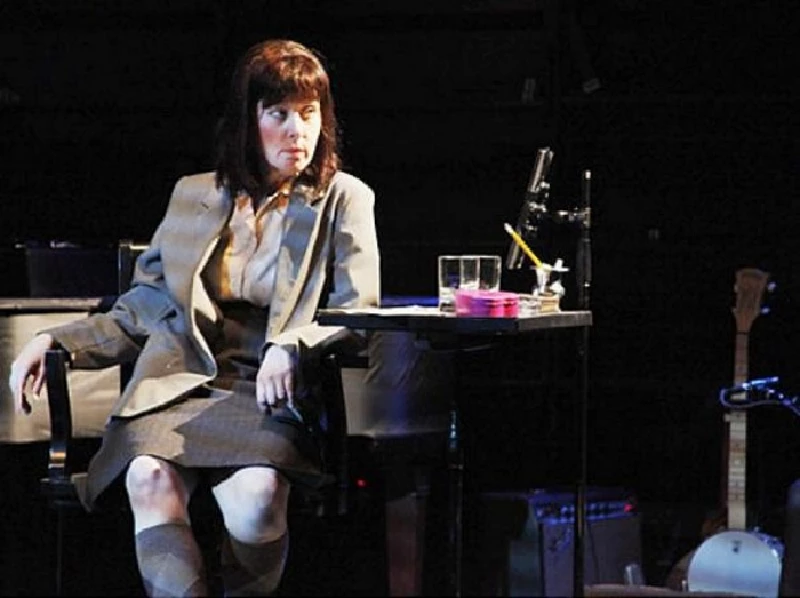
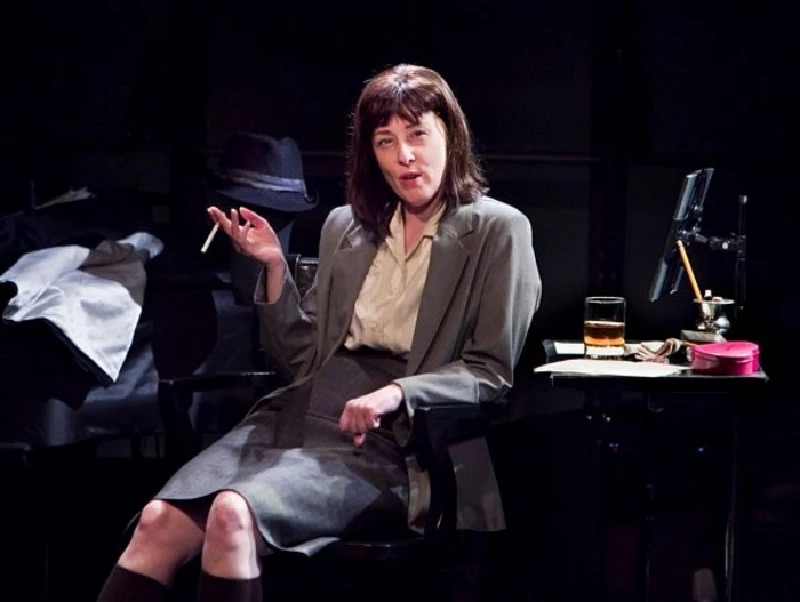
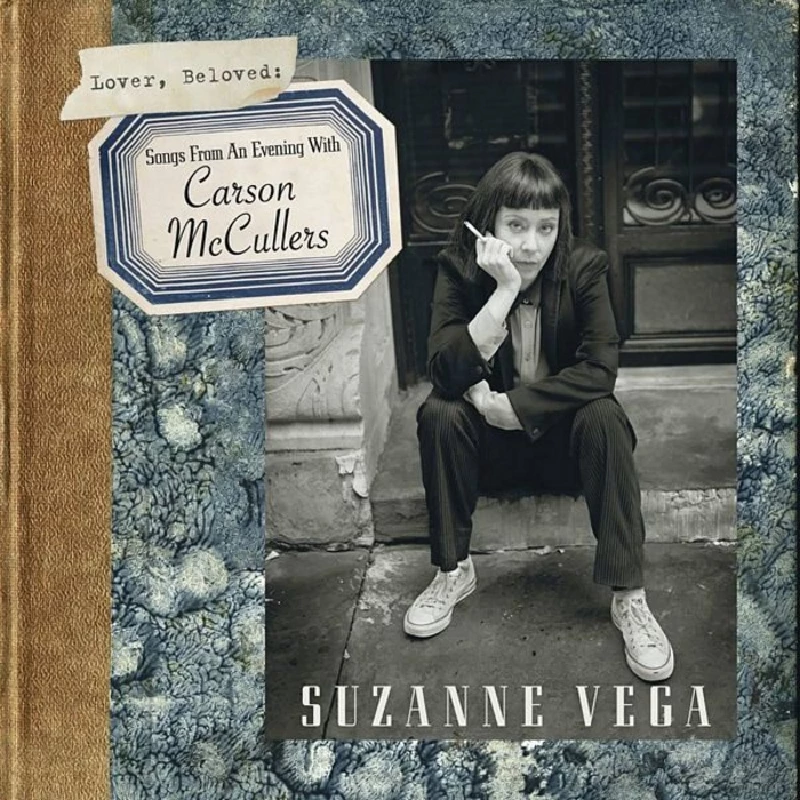
interviews |
|
Interview (2015) |
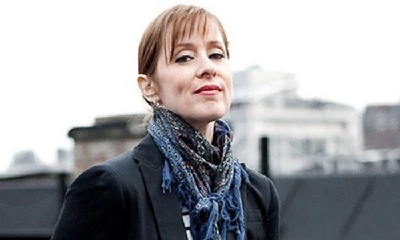
|
| Suzanne Vega chats to Lisa Torem about her timeless, self-titled 1985 debut album, love of bossanova and upcoming UK tour |
| Interview (2014) |
| Interview (2012) |
live reviews |
|
Old Town School of Folk Music, Chicago, 1/5/2022 |
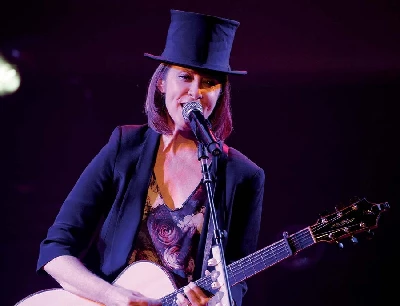
|
| Lisa Torem enjoys Suzanne Vega's much-awaited set at Chicago's Old Town School. which includes hits and selections from her one-woman show about novelist Carson McCullers. |
| S.P.A.C.E., Evanston, Illinois, 22/2/2013 |
soundcloud
reviews |
|
Flying With Angels (2025) |
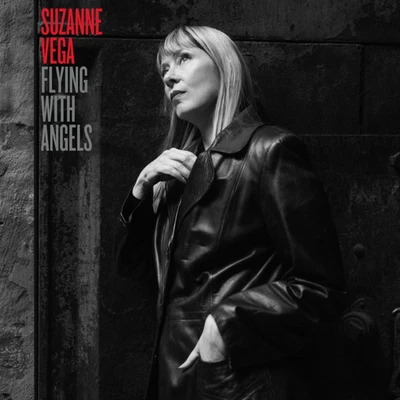
|
| Outstanding first album in nine years from Suzanne Vega which breaks new ground |
| Lover, Beloved: Songs from an Evening with Carson McCullers (2016) |
| Close-Up, Vol. 1-Love Songs (2010) |
most viewed articles
current edition
Carl Ewens - David Bowie 1964 to 1982 On Track: Every Album, Every SongArmory Show - Interview with Richard Jobson
John McKay - Interview
Colin Blunstone - Thalia Hall, Chicago, 16/7/2025
Billie Eilish - O2 Arena, London, 10/7/2025
Bathers - Photoscapes 1
Visor Fest - Valencia, Spain, 26/9/2025...27/9/2025
Loft - Interview
Sir Tim Rice - Interview
Robert Forster - Interview
previous editions
Manic Street Preachers - (Gig of a Lifetime) Millennium Stadium, Cardiff, December 1999Heavenly - P.U.N.K. Girl EP
Beautiful South - Ten Songs That Made Me Love...
Oasis - Oasis, Earl's Court, London, 1995
Peter Perrett - In Dreams Begin Responsibilities Interview Part One
Prolapse - Interview
Coldplay - Wembley Arena. London, 16/8/2022
Boomtown Rats - Ten Songs That Made Me Love....
Trudie Myerscough-Harris - Interview
Pixies - Ten Songs That Made Me Love...
most viewed reviews
current edition
Davey Woodward - Mumbo in the JumboSick Man of Europe - The Sick Man of Europe
Lucy Spraggan - Other Sides of the Moon
Phew, Erika Kobayashi,, Dieter Moebius - Radium Girls
Amy Macdonald - Is This What You've Been Waiting For?
Bush - I Beat Loneliness
Suzanne Vega - Flying With Angels
Alice Cooper - The Revenge of Alice Cooper
Blueboy - 2
Cynthia Erivo - I Forgive You
Pennyblackmusic Regular Contributors
Adrian Janes
Amanda J. Window
Andrew Twambley
Anthony Dhanendran
Benjamin Howarth
Cila Warncke
Daniel Cressey
Darren Aston
Dastardly
Dave Goodwin
Denzil Watson
Dominic B. Simpson
Eoghan Lyng
Fiona Hutchings
Harry Sherriff
Helen Tipping
Jamie Rowland
John Clarkson
Julie Cruickshank
Kimberly Bright
Lisa Torem
Maarten Schiethart